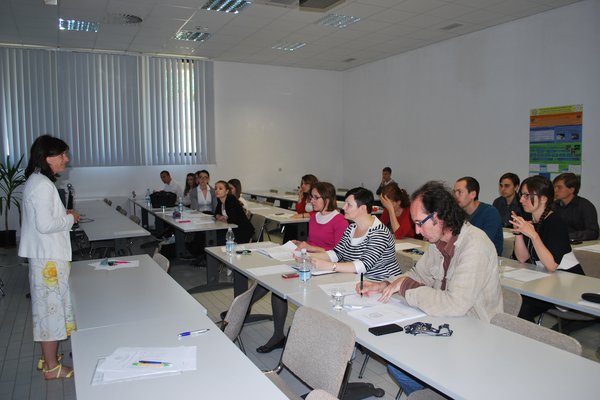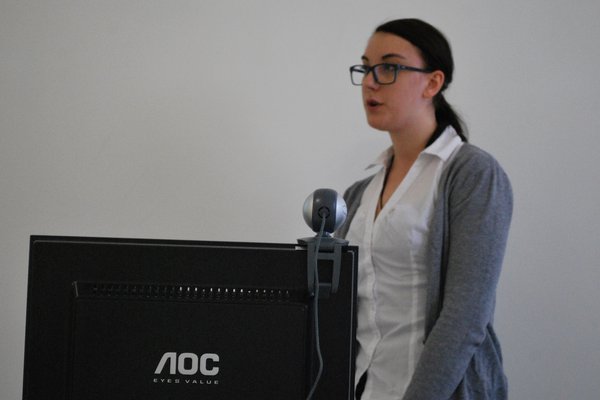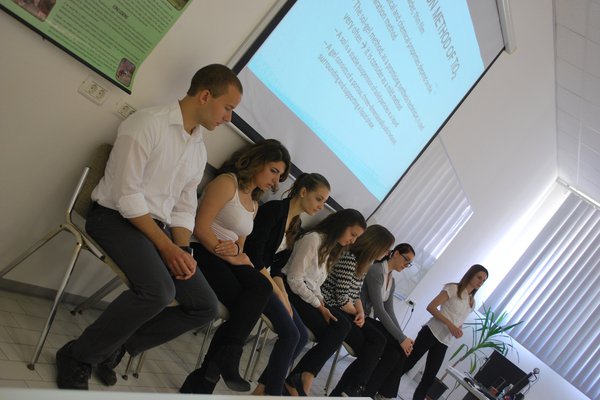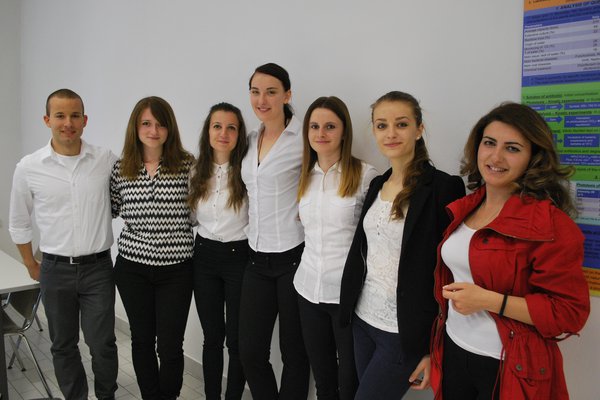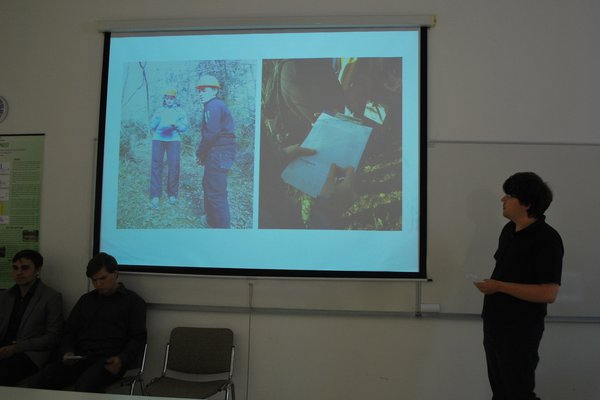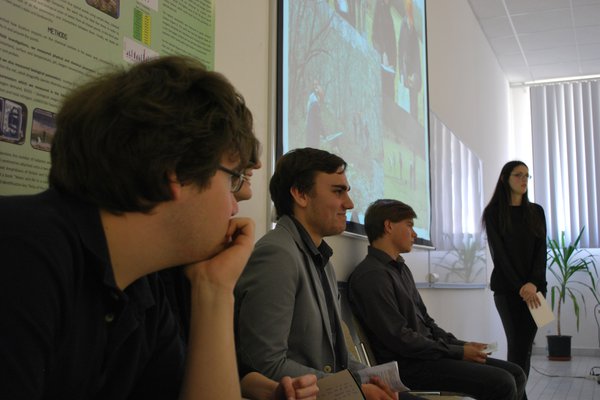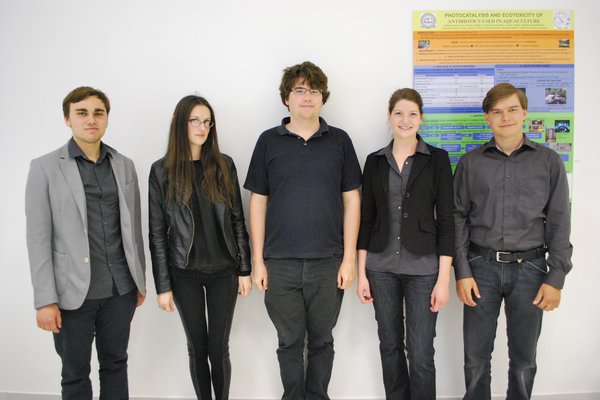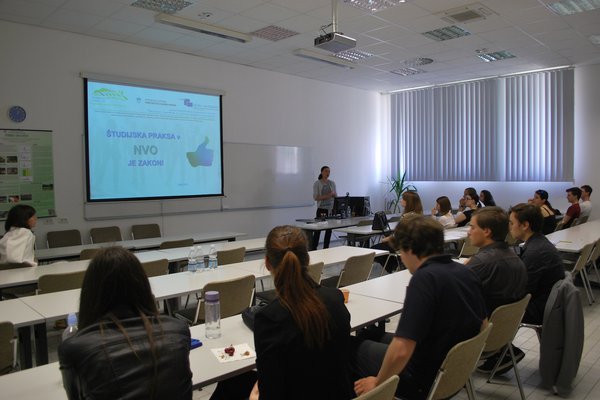Project day 2015 - May
Project Day of the School of Environmental Sciences – May 2015
On 29th May 2015 the School of Environmental Sciences organised the second project day in the 2014/15 academic year. On this occasion, the first- and second-year students of the undergraduate study programme Environment presented their research findings from their group projects.
The second-year students, who, under the supervision of Assist. Prof. Dr. Minoo Tasbihi, have beenn studying the efficient decomposition of organic contaminants, presented the latest results of the experiments performed in the last semester. While in the previous semesters the photocatalytic degradation of a blue dye, used in the textile industry, had been studied, the students in this semester focused on the efficient photocatalytic degradation of the pesticide Imidacloprid. Since photocatalysis represents an alternative option for water treatment, we hope that the findings will contribute to a cleaner environment in the future. The evaluating committee as well as other members of the audience agreed that the group had, in comparison with their previous presentation held in January, made a significant progress in their research. Moreover, the students also considerably improved their project report written in English.
This event was the first opportunity for the freshmen to present their project, but they nevertheless performed well. Their project on the emergence of new ecosystems in the Karst Biosphere Reserve, run under the supervision of Dr. Tanja Peric and, until recently, also by Dr. Jana Laganis, has been carried out in cooperation with the Škocjan Park Caves. The students described the aims of the project, their work performed so far, and explained the future plans concerning their research of this interesting topic.
During project work carried out as part of the courses Introduction into Project Work, Group Project and Group Project I, the students gather experience in scientific research, laboratory work and field work. In addition, they develop their academic writing skills in English and learn how to deliver an efficient oral presentation. This also includes establishing an appropriate contact with the audience and choosing suitable items of clothing to be worn at a formal public event.
At project days, the students also receive valuable feedback on how to further enhance the contents of the written report and the oral presentation. They can take this advice into account when preparing for the next project day.
This project day was followed by the presentation of the opportunities for work placements at NGOs (non-governmental organisations), carried out by the Regional NGOs centre Planota – the BiT Planota Foundation.
The news about various opportunities for work placements in NGOs are relevant for students of Environment as well as of other study programmes, especially those which include practical placement.
The first-level study programme Environment has recently undergone changes according to which the students will have to take practical placement. Practical placement and project work are believed to contribute to better employment opportunities of our graduates, as well as to the successful transfer of the knowledge gained into practice.
Author: Veronika Piccinini

